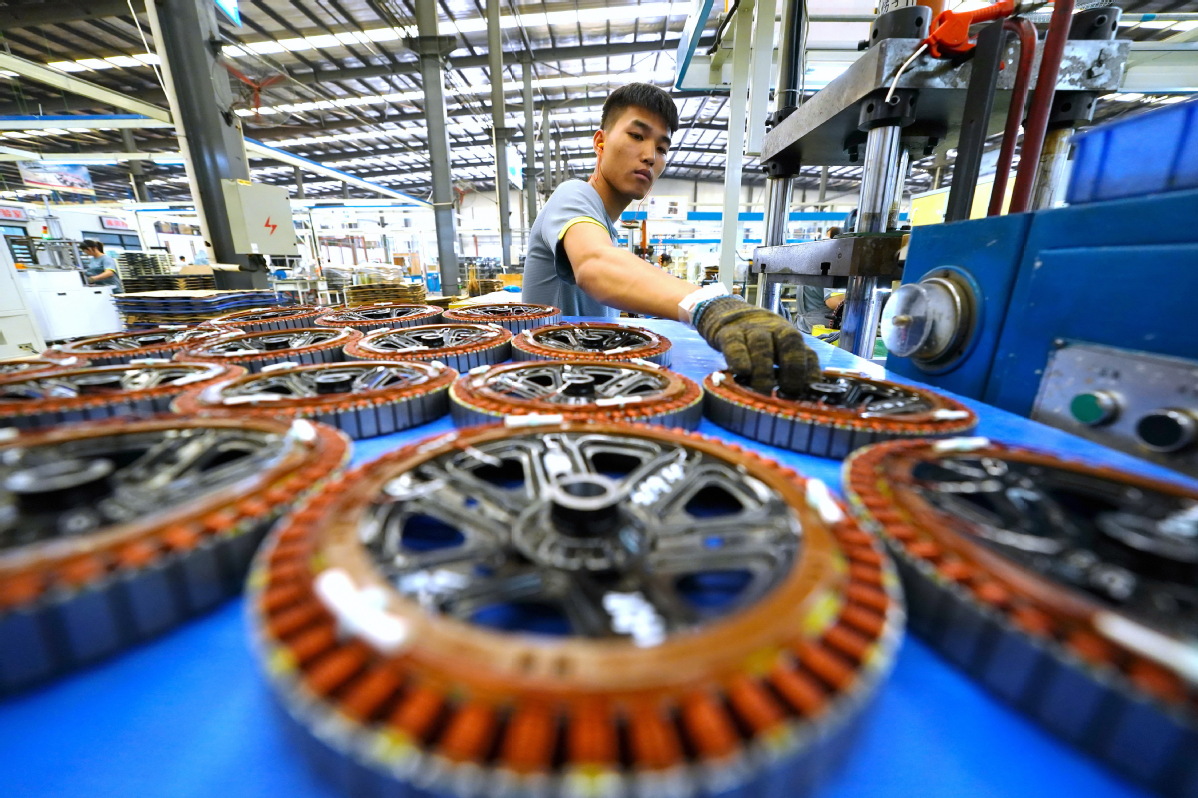How a Chinese trend is raising hopes of troubled SMEs


At first, I thought the question posed to me by a corporate executive was simple enough for me to answer. Not quite, as it transpired.
"How do you think a small company like Yihong Precision gets a piece of the economic cake amid increasingly fierce competition?" That's what Hua Jiansheng, deputy general manager of Yihong, sought to know. It was sort of a rhetorical question, perhaps intended to prime me to receive his answer.
Yihong Precision is a small firm. It makes 300,000 type-C adapters on average per day and supplies them to electronics companies, including big names such as Japan's Sony and Nintendo, as well as Chinese smartphone maker Xiaomi Corp.
The global electronics consumer market, Hua told me, had continued to decline in 2023 and severely affected supply chain providers. "We have been in quite a hard time since the COVID-19 pandemic and then a global downturn in consumer electronics over the past year hit us hard. Many times, I thought that our business will fold."
Nothing is more important than survival, he emphasized, adding the external uncertainties also make millions of SMEs in China to "neijuan", a Chinese word that is used extensively online these days to refer to someone who wants to "compete unnecessarily and excessively".
That expression immediately hit home. I realized how heavily China's SMEs depend on the market and related government policies for a business boost, given their vulnerability to fluctuations like disruptions to supply and industrial chains.
In a roundtable held by China Daily in October, Pan Qingzhong, executive vice-president of Schwarzman College at Tsinghua University, pointed out that the main reason why Singapore, the United Arab Emirates and Ireland attract large investments is that their governments empower businesses by creating a business-friendly environment.
"If you give market entities a little sunshine, they will shine, and if you give them a little rain, they will also grow," Pan said.
Concurred Ma Bin, executive vice-president of the China Association of Small and Medium Enterprises. "The confidence of SMEs continues to be boosted as China launches a series of guidelines to promote the development and growth of private enterprises, along with a series of fiscal, taxation and financial policies to support the real economy and activate the capital market."
To help address the problem, a unique Chinese trend has emerged. An increasing number of central State-owned enterprises are expanding their supplier lists comprising private-sector SMEs, as the country vows to encourage SOEs and centrally administered SOEs to play a big role in helping SMEs.
For instance, a case from the State-owned Assets Supervision and Administration Commission of the State Council showed that half of the 188 domestic suppliers to Shanghai-based Commercial Aircraft Corp of China now are SMEs.
Yang Yuanqing, chairman and CEO of Lenovo Group, the world's largest PC maker, also said established companies should play a bigger role in driving the joint innovation and development of SMEs in the upstream and downstream segments of industrial and supply chains.
SMEs account for 44.5 percent of Lenovo's industrial chain, and the company will offer them help such as financing and marketing resources, especially for those with core technologies.
With all these efforts and policies, though SMEs may face a tough period amid the economic downturn, they are expected to overcome difficulties and play a bigger role in the years to come.




































